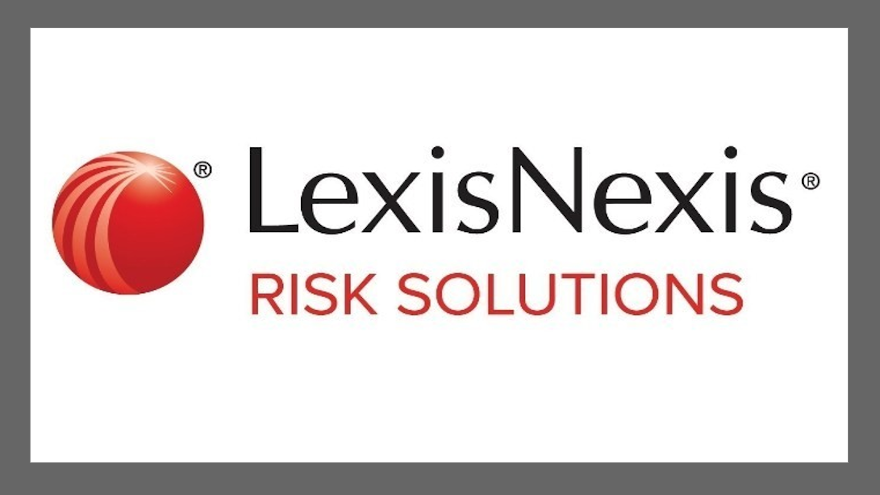This week, Point Predictive launched the company’s first solution designed specifically for dealerships.
The company that provides artificial intelligence solutions to spot fraud and other issues that might derail auto financing highlighted that BorrowerCheck can enable dealers to recognize consumers with income, employment, and identity-related risks that may result in a demand to buy back the contract from the finance company or add friction to future applications.
Point Predictive said through a news release that the solution offers a more accurate and comprehensive view of borrower risk than the red-flag solutions that dealers use today.
BorrowerCheck is the first in a planned suite of products for dealers that will leverage the Point Predictive auto financing consortium, which contains data on more than 120 million historical auto finance applications, 12 billion application risk attributes and more than 56 million unique consumers.
Point Predictive said BorrowerCheck customers can expect to provide higher quality applicants to auto finance companies, reduce the scrutiny on consumers at the dealership and enhance the speed and experience of the consumer.
And Point Predictive added that BorrowerCheck also can help raise a dealer’s score DealerCheck, which is a Point Predictive solution that auto finance companies use to evaluate and manage their dealership relationships.
“Our customers’ experience is vitally important to us,” Mossy Automotive Group vice president of corporate finance Ryan Morris said in the news release. “We believe limiting fraud risk exposure and protecting our dealership reputation while prioritizing our customers’ experience is the key to our continued success. Lowering our risk of buy-back demands will also increase our bottom line.”
In most cases, the solution can help speed up the financing process by focusing a dealer’s validation effort on real risk, instead of false red flags.
Using a simple set of data such as the consumer’s name, address, and Social Security Number, BorrowerCheck can generate a report that details whether dealers need to gather more information on a prospective borrower’s income, employment, or identity prior to submitting the application to finance companies.
If additional scrutiny is warranted, the report can provide recommended tips for performing additional verification.
“Dealers play a vital role on the front line, helping to validate for lenders whether a prospective borrower is being truthful on their applications for financing. As fraud continues to be a growing concern, a tool like BorrowerCheck will help auto dealers quickly and easily minimize fraud risk for themselves and lenders alike,” Point Predictive chief executive officer Tim Grace said.
“Lender relationships are crucial to dealers and having a tool to help improve the quality of the loans submitted to lenders improves those relationships and reduces the risk of expensive buy-back demands and friction for the dealerships and consumers,” Grace continued.
BorrowerCheck leverages data from one of the largest automobile finance company data consortiums in the United States, purpose-built for risk management with more than 101 million historical income reports, 17 million employer records with 6,500 fake employers, more than 200,000 social security numbers tied to default, 102 million Social Security Numbers of deceased individuals, more than $4.5 billion in loans with early payment defaults, $1 billion in contract identified as fraudulent and millions of addresses and telephone numbers linked to risk of fraud or default.
Point Predictive invites managers who wish to learn more about BorrowerCheck for Dealers to visit https://pointpredictive.com/ or contact [email protected].
The impact fraud is having on auto finance and other segments of financial services isn’t diminishing, so Equifax is reinforcing its resources to combat it.
Equifax said this week it is expanding its global footprint in digital identity and fraud prevention with a definitive agreement to acquire Midigator, a provider of post-transaction fraud mitigation solutions.
With the rise of global ecommerce sales, expected to hit $5.5 trillion in 2022, Equifax acknowledged transaction disputes and chargebacks are also surging.
Executives explained Midigator’s highly automated, data-driven chargeback prevention and chargeback dispute management solutions complement the Equifax Kount Identity Trust Global Network, which uses artificial intelligence (AI) to link trust and fraud data signals from 32 billion digital interactions, 17 billion unique devices, and five billion annual transactions across 200 countries and territories.
“We’re energized to expand our identity and fraud capabilities with the acquisition of Midigator. The new Equifax is much more than a credit bureau. Midigator expands our robust differentiated data assets and Kount acquisition in 2021 to bring global businesses the information and solutions they need to better manage fraud across the complete customer lifecycle,” Equifax chief executive officer Mark Begor said.
“With our Equifax Cloud driven data and analytics capabilities and the powerful combination of Midigator and our Kount identity and fraud solutions, Equifax is poised to capitalize on new revenue streams and relationships, broadening our digital identity footprint in a fast growing space,” Begor continued. “This is our 12th acquisition since the beginning of 2021 and we are continuing to reinvest our strong free cash flow in strategic bolt-on acquisitions to expand our capabilities and drive growth in the future.”
Equifax said the transaction is subject to customary closing conditions and is expected to close in the third quarter. The company added the acquisition is not anticipated to have a material impact on 2022 Equifax financial results.
With global omnichannel digital payments expected to grow from 2.6 billion users in 2020 to more than 4.4 billion in 2025, Equifax also pointed out that dispute and chargeback rates present growing problems for businesses around the world.
Founded in 2013, Midigator offers a technology platform designed to automate the dispute response process, but to provide the real-time data businesses need to know why chargebacks are occurring in the first place and better understand their customers.
Executives said Midigator has prevented more than 2.7 million chargebacks. The resulting granular, post-transaction data and digital signals complement the Equifax Kount dataset and augment AI-driven Kount preventative fraud products to combat the illegitimate chargebacks known as “friendly” fraud as well as criminal fraud activities.
“The acquisition of Midigator will bolster the expansion of our digital identity network for current and prospective customers while further enabling new forms of engagement in online commerce,” said Sid Singh, president of United States Information Solutions (USIS) at Equifax. “We’re seeing strong demand from clients and partners for digital identity and fraud prevention solutions that encompass the entire customer journey, specifically around the desire to mitigate and manage post-transaction issues.
“Many organizations are in markets that weren’t prone to friendly fraud before. Now they are. By combining our Kount pre-authorization and preventative protection capabilities with Midigator’s complementary intelligent post-authorization and automated chargeback technologies, we’ll be able to provide a complete solution that enhances customer experience while helping businesses to protect and recover revenue,” Singh continued.
Brad Wiskirchen is general manager of Kount and shared his perspective on how the acquisition will benefit clients.
“We believe that Midigator’s chargeback representment and dispute management solutions are a strong complement to the current Equifax digital enablement and fraud control offerings,” Wiskirchen said. “This acquisition will strongly position us for continued product innovation and provide our customers and partners with the advanced tools and insights they need to protect and recover revenue by combatting illegitimate chargebacks.”
As part of the transaction, LLR Partners, who invested in Midigator in 2018, will exit the business. Once the transaction closes, Midigator will become part of the Equifax USIS business unit.
“Midigator was founded by e-commerce merchants to solve friendly fraud challenges. Over the last decade, companies ranging from startups to established brands have used Midigator for intelligent chargeback responses, in-depth analytics, real-time account reporting and dispute processes,” said Corey Baggett, founder and CEO of Midigator.
“Our solutions are grounded in a strong foundation of data analysis and we’re excited for the new opportunities and product innovation that will come from having our offerings combined with the expansive set of Equifax data, analytics and products,” Baggett went on to say.
Raymond James served as financial advisor and Goodwin Proctor served as legal advisor to Midigator in this transaction. King & Spalding served as the legal advisor to Equifax.
For our monthly installment of the Auto Remarketing Podcast focused on fraud, Justin Davis and Frank McKenna of Point Predictive recapped the roundtables they orchestrated in June in conjunction with the Non-Prime Auto Financing Conference hosted by the National Automotive Finance Association.
The roundtables included representatives from captives to related finance companies at buy-here, pay-here dealerships as well as shops of many other sizes and footprints. According to Davis and McKenna, they all have the same objective in the fraud department.
To listen to the conversation, click on the link available below, or visit the Auto Remarketing Podcast page.
Download and subscribe to the Auto Remarketing Podcast on iTunes or on Google Play.
For the latest episode of the Auto Remarketing Podcast focused on fraud, Point Predictive’s Frank McKenna and Justin Davis explore how technology is developed to keep fraud from infiltrating dealerships and finance companies.
McKenna and Davis also touched on the successes that germinate from Hackathons as well as when two service providers integrate their solutions.
To listen to the conversation, click on the link available below, or visit the Auto Remarketing Podcast page.
Download and subscribe to the Auto Remarketing Podcast on iTunes or on Google Play.
Experian recently was named the top established leader in digital identity in Juniper Research’s Digital Identity Competitor Leaderboard.
The report provides a five-year forecast for the digital identity sector and cites Experian and its CrossCore platform as the market leader in capacity, capability and product strength.
“We’re thrilled Juniper Research has positioned us as the top provider of digital identity,” said David Britton, vice president of global strategy for digital identity and fraud at Experian. “Being able to accurately identify a customer in a digital transaction helps our clients provide a better customer experience and prevent fraud.
“Fighting fraud and reducing risk, while enabling great consumer experience, is at the heart of Experian’s mission to make the digital world a safer place, even as cybersecurity rises as a worldwide threat,” Britton continued in a news release.
Experian highlighted that CrossCore is its flagship digital identity and fraud management platform. First launched in 2016, Experian said the tool is currently used by more than 400 clients worldwide.
Recent acquisitions and new third-party partners have expanded CrossCore’s identity and fraud capabilities and expanded its reach.
Other Experian identity and fraud and decisioning products are integrated into CrossCore, and customers can connect their own products into the platform as well.
Juniper Research noted CrossCore’s recent updates to further improve identity verification processes
Experian said it also was praised for its high expertise in partnerships, identification coverage, customers and deployments.
“One of the key advantages of the platform is the flexibility it provides: customers are enabled to specify services needed based on the workflow logic and decision criteria for each transaction,” Juniper Research said in the release. “Business customers are also empowered to use self-service workflows and reporting mechanisms, allowing them to adapt their strategies.”
Fraud is certainly complex. But for this monthly episode of the Auto Remarketing Podcast focused on fraud, we go back to the definitions and roots of fraud with Point Predictive’s Justin Davis and Frank McKenna.
Davis and McKenna not only shared easy to understand concepts, they also offered suggestions to help dealerships and finance companies not overlook some basics that could lead to complicated problems.
To listen to the conversation, click on the link available below, or visit the Auto Remarketing Podcast page.
Download and subscribe to the Auto Remarketing Podcast on iTunes or on Google Play.
It seems like everywhere businesses in all industries look, fraud is a growing threat.
Results from the latest Small and Midsize Business (SMB) Lending Fraud Study from LexisNexis Risk Solutions emphasized the situation.
The survey of risk and fraud executives at financial institutions reveals that SMB lending fraud in the United States has increased 6.9% since 2020.
LexisNexis Risk Solutions indicated that SMB lending fraud losses account for a significantly higher percent of financial firms’ annual revenues year-over-year at an 6.2% increase overall, with larger banks with more than $10 billion in revenue and fintechs/digital lenders seeing the sharpest year-over-year increase.
The firm highlighted three key findings from its latest fraud analysis, including:
— Labor-focused spending increased: More fraud prevention costs have involved labor compared to early 2020, as lending faced increased loan requests because of the Paycheck Protection Program and battled more fraud related to counterfeit business credentials and fake or stolen consumer identities associated with businesses applying for loans.
— Increase in mobile channels: Online and mobile channels continue to represent the largest share of lending origination transactions. Mobile channel fraud losses have increased 10% or more, particularly among fintechs and larger banks.
— Layering solutions lessens cost: Lenders that layer more advanced identity authentication with advanced transaction/identity verification solutions experienced a lower rate of increased fraud overall and the pandemic had less of a fraud impact on these institutions.
“The digital channel environment is upon us and continues to grow as customers and prospects expect digital lending options, particularly during times that make in-person transactions more challenging,” said Tom Hunt, director of business risk strategy at LexisNexis Risk Solutions.
“At the same time, fraud is evolving and has become more complex for lenders,” Hunt continued in a news release. “Various risks can occur simultaneously with no single solution to solve for all of them. To be effective, fraud tools now need to authenticate both digital and physical criteria simultaneous with identity and transaction risk.”
LexisNexis Risk Solutions also explained that the results of the survey illustrate the deep impact that the pandemic had on lending, contributing largely — more than one-third — to the increased costs associated with SMB lending fraud.
Respondents indicated that the pandemic negatively impacted them through both increased fraud and more complexity in fraudster methodology.
The firm pointed out that stolen legitimate business and consumer identities and the use of synthetic consumer identities make it incredibly difficult for lenders to distinguish between legitimate and fraudulent loan requests.
LexisNexis Risk Solutions went on to mention that the the pandemic forced many lenders to make changes to their fraud detection and mitigation approaches, particularly among fintechs and larger banks, leading to higher labor costs.
However, though those processing a sizeable volume of loans through digital channels indicate an even larger pandemic-related cost increase, Hunt pointed out that fintechs and larger banks appear to be following best practices of integrating the digital/customer experience within their fraud prevention solutions.
“The impact of the pandemic on costs associated with lending fraud is clear, although there is no one-size-fits-all model to solve for SMB fraud,” Hunt said. “When employing a layered solution approach, lending firms with digital channel business models should implement solutions for their unique channel issues and fraud.
“One of the best fraud prevention approaches involves a layering of different solutions to address unique risks from different channels, payment methods and products,” he continued. “This approach also allows lenders to integrate additional capabilities and operations more easily within their fraud prevention efforts.”
The LexisNexis Risk Solutions study surveyed 149 individuals working at banks, credit unions, fintech/digital lenders and payment processors with responsibility for risk and fraud assessments or decisions for SMB customers. SMBs are businesses earning up to $10 million annually.
LexisNexis Risk Solutions reiterated that the study set out to better understand SMB lending fraud, specifically its volume, how institutions identify and track fraud, the types of fraud experienced, what institutions are doing to combat fraud and whether there are differences in SMB lending fraud based on the size or type of organization.
Global market research firm KS&R collected respondent data by phone during August and September.
To download the 2021 LexisNexis Risk Solutions Small and Mid-Sized Business (SMB) Lending Fraud Study, go to this website.
Whether it’s the digital path to land auto financing or a spouse, fraud can infiltrate the process, potentially resulting in a broken bank account or heart.
Experian recently released its annual Future of Fraud Forecast, which reveals five fraud threats for the new year.
With consumers continuing to take a digital-first approach to everything from shopping, dating and investing, Experian indicated fraudsters are finding new and innovative ways to commit fraud.
Experts said this year’s threats include:
1. Buy Now, Pay Never
Experian highlighted the Buy Now, Pay Later (BNPL) space has grown massively recently. In fact, Experian indicated the number of BNPL users in the U.S. has grown by more than 300% per year since 2018, reaching 45 million active users in 2021 who are spending more than $20.8 billion.
“Without the right identity verification and fraud mitigation tools in place, fraudsters will take advantage of some BNPL companies and consumers in 2022,” Experian said.
Experian predicted BNPL lenders will see an uptick in two types of fraud: identity theft and synthetic identity fraud, when a fraudster uses a combination of real and fake information to create an entirely new identity.
“This could result in significant losses for BNPL lenders,” Experian said.
2. Beware of Cryptocurrency Scams
Experian explained digital currencies, such as cryptocurrency, have become more conventional and scammers have caught on quickly.
According to the Federal Trade Commission, investment cryptocurrency scam reports have skyrocketed, with nearly 7,000 people reporting losses totaling more than $80 million from October 2020 to March 2021.
In 2022, Experian predicted that fraudsters will set up cryptocurrency accounts to extract, store and funnel stolen funds, such as the billions of stimulus dollars that were swindled by fraudsters.
3. Double the Trouble for Ransomware Attacks
In the first six months of 2021, there was $590 million in ransomware-related activity, which exceeds the value of $416 million reported for the entirety of 2020 according to the U.S. Treasury’s Financial Crimes Enforcement Network.
Experian predicted that ransomware will be a significant fraud threat for companies in 2022 as fraudsters will look to not only ask for a hefty ransom to gain back control, but criminals will also steal data from the hacked company.
“This will not only result in companies losing sales because of the halt caused by the ransom attack, but it will also enable fraudsters to gain access and monetize stolen data such as employees’ personal information, HR records and more — leaving the company’s employees vulnerable to personal fraudulent attacks,” Experian said.
4. Love, Actually?
Because more consumers went on dating apps and social media to look for love during the pandemic, Experian pointed out that fraudsters saw an opportunity to create intimate, trusted relationships without the immediate need to meet in-person.
Furthermore, the FBI found that from the beginning of January through the end of July of last year, the FBI Internet Crime Complaint Center received more than 1,800 complaints, related to online romance scams, resulting in losses of approximately $133 million.
Experian predicted that romance scams will continue to see an uptick as fraudsters take advantage of these relationships to ask for money or a “loan” to cover anything from travel costs to medical expenses.
5. Digital Elder Abuse Will Rise
According to Experian’s latest Global Insights Report, there has been a 25% increase in online activity since the start of COVID-19 as many, including the elderly, went online for everything from groceries to scheduling health care visits.
“This onslaught of digital newbies presents a new audience for fraudsters to attack,” said Experian, which predicted that consumers will get hit hard by fraudsters through social engineering (when a fraudster manipulates a person to divulge confidential or private information) and account takeover fraud (when a fraudster steals a username and password from one site to takeover other accounts).
“This could result in billions of dollars of losses in 2022,” Experian added.
According to Juniper Research, merchant losses to online payment fraud will exceed $206 billion cumulatively for the period between 2021 and 2025.
“That’s why it’s crucial that businesses get the right fraud prevention tools in place to anticipate future scams and mitigate financial losses,” Experian said.
After finalizing those five predictions, Kathleen Peters, chief innovation officer at Experian Decision Analytics in North America, offered this assessment.
“Business and consumers need to be aware of the creativity and agility that fraudsters are using today, especially in our digital-first world,” Peters said in a news release.
“Experian continues to leverage data and advanced analytics to develop innovative solutions to help businesses prevent fraudulent behavior and protect consumers,” she continued.
Businesses can use Experian’s suite of fraud prevention and identity verification tools “to stay one step ahead of fraudsters.”
Last year, Experian said its fraud prevention solutions helped clients save $10 billion in fraud losses globally.
To learn more about Experian’s fraud prevention solutions, visit https://www.experian.com/business/solutions/fraud-management.
We’re beginning a new year with a new series as a part of the Auto Remarketing Podcast.
Each month, we’ll have a conversation focused on the latest developments and trends connected with fraud happening in auto finance and elsewhere in financial services with experts from Point Predictive. For this first installment, Frank McKenna and Justin Davis reviewed the most notable events of 2021.
McKenna and Davis also touched on a couple of instances that didn’t get as much broad attention but still could impact finance companies.
To listen to the conversation, click on the link available below, or visit the Auto Remarketing Podcast page.
Download and subscribe to the Auto Remarketing Podcast on iTunes or on Google Play.
Coinciding with new credit facilities and equity financing, Point Predictive launched new products last week that aim to deliver an “unparalleled level” of visibility and control to auto finance companies tackling automation and digital transformation challenges in fraud and risk management operations.
Point Predictive highlighted that its Case Manager & Rules Engine are browser-based SaaS solutions designed to provide teams with an intelligent layer of risk controls, automation logic, action guidance and key metrics across their originations process.
The company explained that this risk management solution has been specifically built for auto finance companies, as it integrates Point Predictive’s full complement of fraud risk scores, alerts, and consortium data with existing loan origination systems (LOS) to streamline operational risk workflows for analysts and underwriters. Traditional solutions offered to the auto industry are generic workflow solutions that require expensive customization to meet the specific needs of the auto industry;
Point Predictive indicated that its Case Manager and Rules Engine are designed from the ground up as “auto first” offerings to include features to help finance companies reduce unnecessary friction for applicants while protecting organizations against a growing influx of fraud and misrepresentation scams and schemes.
Those features include:
— API integration with real-time data synchronization
Case Manager is geared to serve as an independent, fully-synchronized user interface layer that can work seamlessly alongside a finance company’s current origination environment. Teams can review and action individual applications through Case Manager while keeping the application pipeline intact and flowing.
— Live analytics and an operational dashboard
Since all data is synchronized between Case Manager and the loan origination system of record, Point Predictive said the tool can give teams a detailed array of current operational metrics, including application volume, approve/review rates and caseload statistics to optimize staffing and fraud risk exposures.
— Configurable queues
Case Manager can allow finance companies to set up virtual queues to better allocate team resources and accelerate application throughput. This flexible approach to queue management is designed to ensure finance companies source their operations in a highly-custom way toward the goal of moving trustworthy applications quickly through underwriting in the most automated way possible.
Point Predictive added that these queues also can shift focus manual review resources on only those applications that are risky enough to warrant specific actions under the finance company’s rules and configuration.
— Rules management and policy controls
Point Predictive acknowledged that every organization defines the rules and controls necessary to manage risk while growing revenue and profitability. Case Manager can give administrators the ability to define stipulations and other LOS actions with easy-to-use, click-based logic that can be tested before being implemented.
The company said this process can enable changes to be made to risk management policies quickly without waiting for scarce IT resource windows to become available. These rules also power automation logic.
— Automation logic
Point Predicative indicated most rules, policies and procedures for fraud and risk management can be executed without human intervention using Case Manager’s automation logic combined with the Rules Engine using the latest data in the finance company’s environment.
Automation logic, in combination with rules and real-time data integration, can ensure that finance companies are moving as fast as possible without incurring additional risk.
— Filters
Filters can allow finance companies to view and manage subsets of their origination volumes.
With many U.S. auto finance companies processing thousands of applications each day, Point Predictive recognized that narrowing the focus of agents can be difficult, so these filters can allow staff to find and manage only the necessary subset of applicants.
— Case creation
Point Predicative said case creation is designed to be easy for underwriters, call center representatives and supervisors because all current application data is synchronized with Case Manager.
Case narratives can be entered about any risk concern in seconds, aiding a risk analyst review within the correct queue.
— Fraud reporting
Case Manager can enable finance companies to report and track all suspicious applications sent to fraud teams for investigation and can track how cases generated by system rules are dispositioned.
Point Predictive said U.S. auto finance companies are expected to be exposed to more than $7.7 billion in potential fraud losses in 2022. Point Predictive co-founder and chief executive officer Tim Grace explained that’s part of the reason why the company launched these new solutions.
“Point Predictive introduced the auto lending industry to the consortium approach, which gave lenders a cross-industry perspective on the trustworthiness of the information they receive on credit applications,” Grace said in a news release.
“With Case Manager, any auto finance organization is now in a position to streamline its entire fraud and risk underwriting process in a way that is best suited for its own strategy and operational realities,” he continued. “Every lender that has previewed Case Manager knows that it is one of the easiest ways to further reduce fraud loss exposure while growing top line revenue, all in a manner that avoids any disruption to the technology infrastructure in place.”
Point Predictive invites any finance companies that wish to explore Case Manager and other benefits of consortium membership to contact [email protected].
Point Predictive’s new growth financing
In other company news, Point Predictive said it has received new credit facilities and equity financing from CIBC Innovation Banking, Ten Coves Capital and Mosaik Partners.
“The challenges that fraudulent applicants pose to lenders continue to increase in both volume and complexity,” Grace said in another news release. “Our ability to continually refine and expand the company’s suite of fraud prevention countermeasures and to help our customers automate their loan origination processes is more important than ever.
“We are very pleased that our partners at CIBC Innovation Banking, Ten Coves Capital and Mosaik Partners understand the industry’s need, and opportunity before us, to become the trusted automation partner to lenders across verticals,” Grace continued.
Miles Kilburn of Mosaik Partners pointed out, “We have been fans of Point Predictive’s vision from the start.
“It’s been amazing to see the company grow and execute so well against its original vision,” Kilburn said. “We’re excited to continue to support the company with this additional investment, and believe it is well positioned to capitalize on the large market opportunity before it.”
Paul Gibson is managing director in CIBC Innovation Banking’s office in Reston, Va.
“The management team at Point Predictive leads a robust team dedicated to safeguarding lenders across multiple sectors including automotive, mortgage, retail, and others,” Gibson said. “We are excited to support the company as it continues to scale globally and respect the trust and confidence that they have placed in us.”
And Steve Piaker of Ten Coves Capital added, “The consumer data assets Point Predictive has built are unmatched when it comes to fraud and misrepresentation.
“Capturing the history of over 100 million loan applications, including the performance of those applications and corresponding detail around income, employment, and third parties, such as dealers, brokers and correspondent lenders, has allowed the company to compound its data advantage and provide a differentiated suite of fraud-detection solutions that deliver instant ROI for its customers,” Piaker went on to say.












